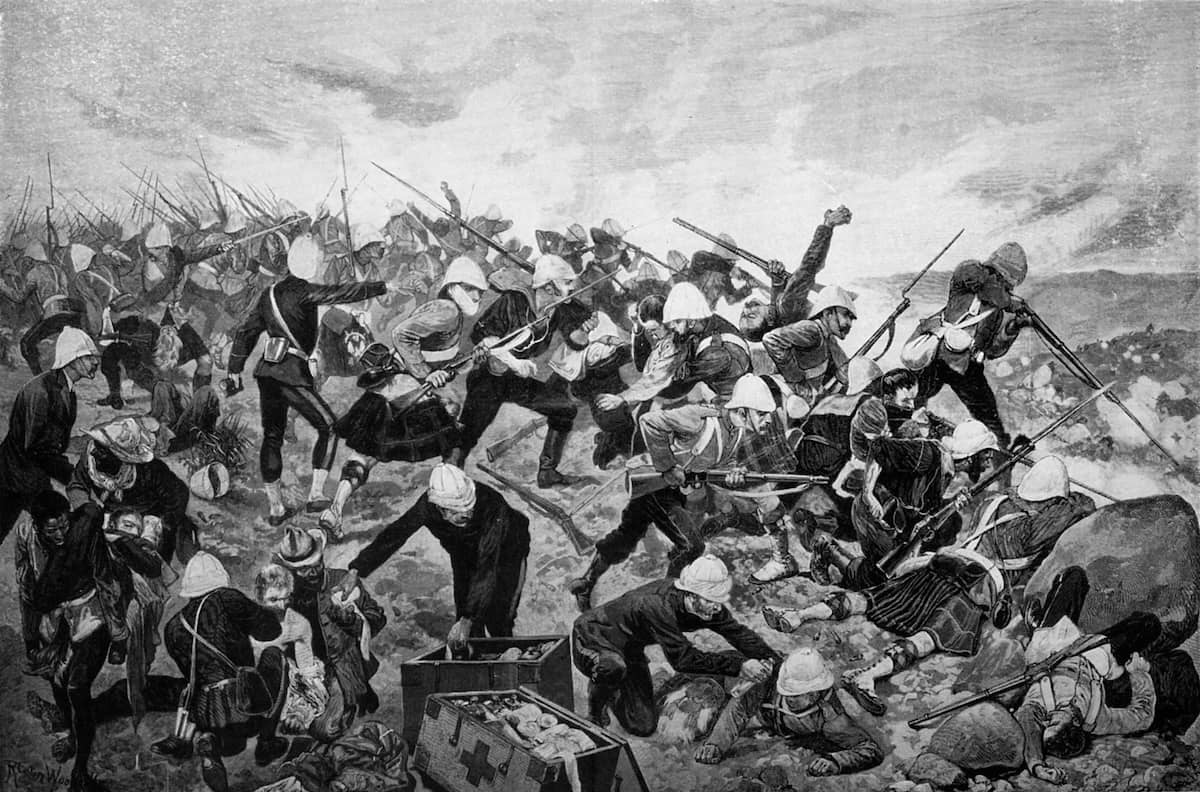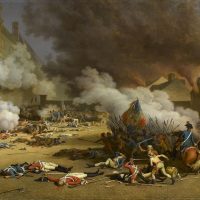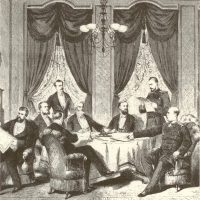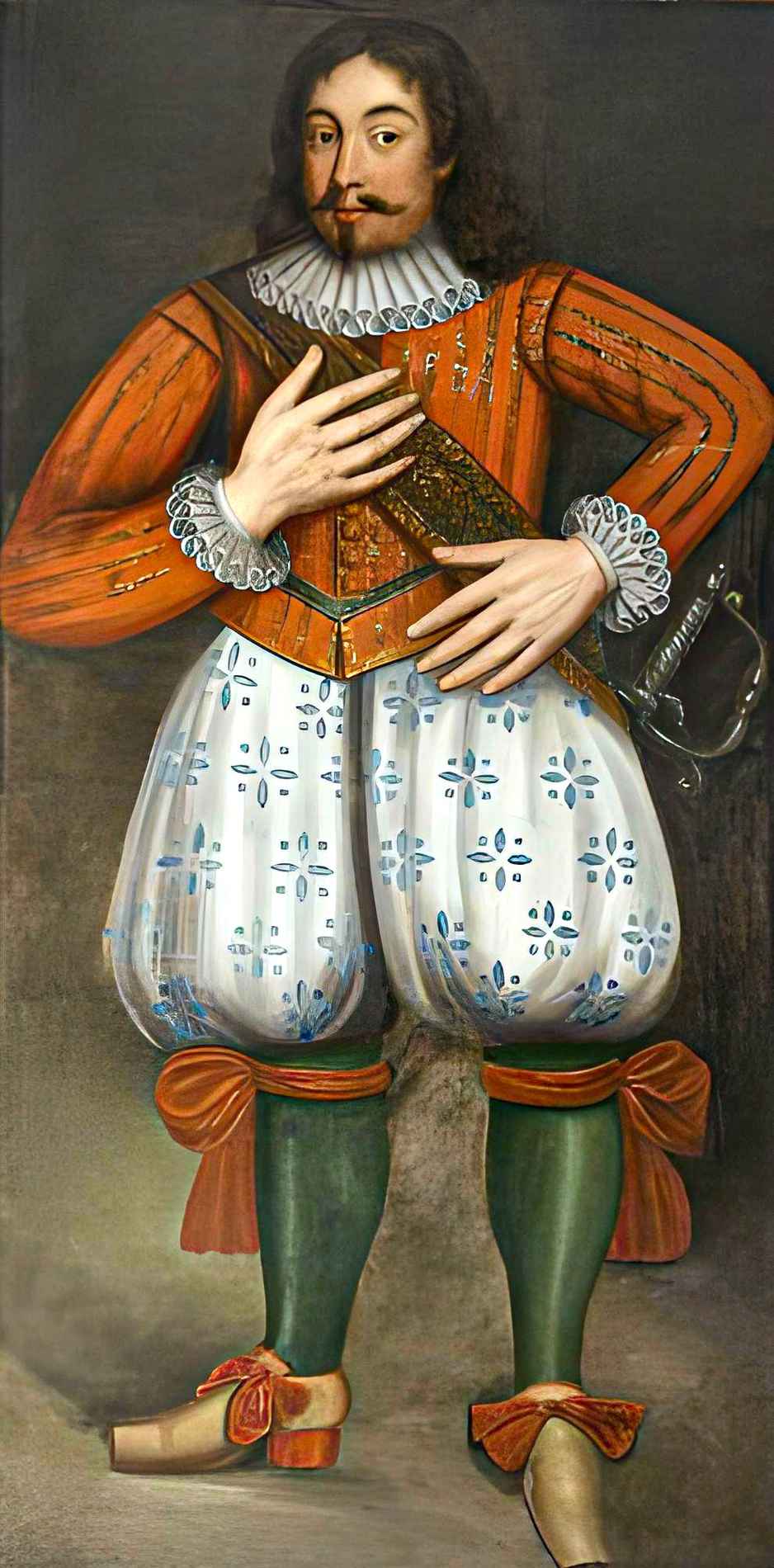The Boer War is a conflict that pits the Boers, Dutch-speaking settlers of South Africa, against the British. In the late 18th century, the two communities competed for the colonization of southern Africa. After the annexation of the Cape Colony by the British Crown, the Boers settled further north, where they founded the Transvaal Republic and the Orange Free State. Following the United Kingdom’s attempt to annex the Boer Republic of Transvaal, the first Boer War broke out in 1880 and ended in a defeat for the British.
- What Were the Causes of the Boer War?
- Who Fought in the Boer War?
- Where and When Did the Boer War Take Place?
- What Were the Circumstances Surrounding the First Boer War?
- Why Did the Second Boer War Take Place?
- How Many Dead Were There in the Boer Wars?
- What Happened in the Concentration Camps?
- What Were the Consequences of the Boer War?
- What Books and Films Tell the Story of the Boer War?
- Key Dates in the Boer Wars
In 1887, tensions resurfaced: many British from the Cape Colony were drawn to the gold fields in Transvaal. The Boers refused to grant rights to these foreigners, providing a pretext for the British Crown to attempt a new annexation of Transvaal. In 1899, Transvaal and its ally, the Orange Free State, went to war against the United Kingdom. The British, being more numerous, emerged victorious from this second Boer War in 1902.
What Were the Causes of the Boer War?
At the end of the 19th century, European settlers had been present in South Africa since the 17th century. Two main communities coexisted more or less peacefully: on one side, the Boers (future Afrikaners), pioneers of Dutch, German, and French origin, and on the other side, the British.
When revolutionary France created the Batavian Republic, the Cape Colony, a Dutch colony, came under British control in 1795. The Cape Colony once more became a Dutch colony during the Napoleonic Wars in 1803, and the British retook control of it in 1806. In 1814, it was definitively ceded to the United Kingdom.
The British colonization of South Africa continued, to the detriment of the Boers. They decided to leave the Cape Colony to settle further north and founded the independent Republic of Natal (1839). In 1843, the British Empire annexed it. The Boers then created the Transvaal and the Orange Free State. The discovery of diamonds and gold attracted many British settlers. In 1877, the British sought to annex the Transvaal. The Boer government accepted the annexation, but Paul Kruger, the vice president, opposed it and organized armed resistance.
Who Fought in the Boer War?
The Boer War pits the Republic of Transvaal against the United Kingdom. The Boer leaders are Paul Kruger, Piet Joubert, and Marthinus Wessel Pretorius. Paul Kruger, vice president of Transvaal, becomes a prominent Boer figure in the resistance against the British. The Boer army, composed of inhabitants of the Boer republics (Dutch, Germans, and French), numbered about 3,000 men. The British, commanded by Major-General Sir George Pomeroy Colley, numbered around 1,200.
Where and When Did the Boer War Take Place?
The Boer War took place in the European colonies located in what is now South Africa. A significant conflict of the late 19th century, it began on December 20, 1880, and ended on March 23, 1881. A second Boer War occurred from October 11, 1899, to May 31, 1902.
What Were the Circumstances Surrounding the First Boer War?
The First Boer War, also known as the “Transvaal War,” resulted from British incursions into the Transvaal and the British Empire’s desire to control the entire region of South Africa. Indeed, the British Crown aimed to secure the sea route to India, passing through the Cape Colony. Furthermore, it aimed to seize the gold and diamond mines of the region while strengthening its presence on the African continent.
On December 16, 1880, the Boers launched an armed rebellion against the British, attacking garrisons and convoys. The conflict primarily took place in the eastern part of present-day South Africa. Skilled marksmen and adept horsemen, the Boers won most of the battles. On February 27, 1881, the British suffered a severe defeat in the disaster at Majuba (92 British deaths compared to only 1 among the Boers). The British government did not wish to continue hostilities and signed the Pretoria Convention on August 3, 1881. It recognized the independence of the Transvaal, a victory for the Boers.
Why Did the Second Boer War Take Place?
The Second Boer War took place on the territory of present-day South Africa. It opposed the Republic of Transvaal and the Orange Free State to the United Kingdom. In 1887, a vast gold deposit was discovered in Transvaal, attracting British settlers from the Cape Colony. Annoyed, the Boers restricted the rights of these increasingly numerous foreigners. The United Kingdom demanded equal rights between the Boers and British in Transvaal and stationed troops on the border. On October 11, 1899, Paul Kruger, president of the Republic of Transvaal, declared war on the United Kingdom.
The Boers were the first to attack. They invaded the Cape and Natal colonies and besieged several cities, including Mafeking, defended by Robert Baden-Powell. On November 15, they captured Winston Churchill, who was then 24 years old. Gandhi influenced and participated in the Boer War. Serving as a stretcher-bearer in the British camp, he fought for the rights of Indians, although he showed racism towards blacks.
From 1900 on, the British offensive pushed back the Boers. The Boers then engaged in guerrilla warfare. In response, British soldiers burned farms and deported the elderly, women, and children. The British were able to defeat the Boers despite their low morale, lack of supplies, and disadvantage in numbers. On May 31, 1902, the Treaty of Vereeniging ended the Second Boer War.
How Many Dead Were There in the Boer Wars?
The First Boer War resulted in 41 deaths and 47 wounded among the Boer forces, and 408 deaths and 315 wounded among the British forces. The Second Boer War was more deadly. Among the Boers, approximately 6,000 soldiers and 26,000 civilians were killed. The British lost 22,000 men, with 14,000 succumbing to diseases, and suffered over 22,800 wounded.
What Happened in the Concentration Camps?
In March 1901, the British implemented the scorched earth strategy: they destroyed Boer farms to prevent the enemy from resupplying. Approximately 120,000 women, children, and elderly individuals, driven from their farms, were interned in concentration camps. Living conditions were unsanitary, and prisoners suffered from malnutrition. More than 22,000 children under the age of 16 died in British camps. By early 1902, conditions improved due to Emily Hobhouse, a British nurse who exposed the treatment of Boer prisoners.
What Were the Consequences of the Boer War?

Following the Treaty of Vereeniging, signed on May 31, 1902, in Pretoria, the Republic of Transvaal and the Orange Free State were annexed by the British Empire. The Boers agreed to submit to the authority of the Crown in exchange for a financial compensation of 3 million pounds sterling and self-governance. In 1910, the Union of South Africa, the predecessor to modern-day South Africa, was established. It was led until the early 1990s by Afrikaner prime ministers.
What Books and Films Tell the Story of the Boer War?
Among the films set during the Boer War, notable mentions include “Breaker Morant” (1980) and “Blood and Glory” (2016). Wilbur Smith’s “The Sound of Thunder,” one of the most well-known books about the Boer War, is a classic in literature. The song “De la Rey” by Bok van Blerk was released in 2006 as a tribute to the Boer general Koos de la Rey, and it became very popular among Afrikaners.
Key Dates in the Boer Wars
April 12, 1877: The Transvaal is annexed by the United Kingdom
The United Kingdom annexed the Transvaal in South Africa on April 12, 1877. The British Colonial Secretary, Lord Carnarvon, was particularly interested in the newly discovered diamond deposits. The Boer Vice President, Paul Kruger, organized resistance, which took shape in 1880. The Boer revolt only ended in 1881 with the recognition of their autonomy, although they remained under British sovereignty.
January 22, 1879: Battle of Isandlwana
On January 22, 1879, a British army contingent of nearly 15,000 soldiers was severely defeated in the Battle of Isandlwana. 1,600 British soldiers were killed by the Zulu troops led by Chief Cetshwayo, marking one of Britain’s greatest defeats in the Anglo-Zulu War. The conflict ultimately ended with the victory of the Zulus and the total independence of their kingdom.
December 20, 1880: Start of the First Boer War
December 20, 1880, marked the beginning of the First Boer War with the Battle of Bronkhorstspruit. The Boers, discontented with Britain’s desire to annex the Transvaal to access the newly discovered diamond deposits, attacked a military convoy near the town of Bronkhorstspruit. The British soldiers suffered a severe defeat with significant losses. The war only concluded on March 23, 1881.
February 8, 1881: Battle of Schuinshoogte
The Battle of Schuinshoogte or Ingogo, where British troops were defeated by Boer fighters, occurred on February 8, 1881. It was part of the First Boer War that began in 1880 when the UK expressed the desire to annex the Transvaal region to access newly found diamond deposits. The war ended by the end of March.
February 27, 1881: Battle of Majuba Hill
The Boers defeated British army troops under General George Pomeroy Colley on February 27, 1881, in the First Boer War against the UK’s annexation of Transvaal. The Battle of Majuba Hill led to an armistice on March 6 and a peace treaty on March 22, 1881. George Pomeroy Colley died during this conflict.
1895: Jameson Raid
Jameson planned to overthrow the Afrikaner government of Paul Kruger and sided with his friend Cecil Rhodes, the former Prime Minister of the Cape. Organizing a private force, he attacked the government of the Transvaal province. The raid began on December 29, 1895, from Bechuanaland but suffered defeat at the Battle of Doornkop against General Cronjé on January 2, 1896. Jameson was expelled to England, but this event foreshadowed the Second Boer War.
October 11, 1899: Start of the Second Boer War
The Second Boer War broke out on October 11, 1899, following rising tensions between the British and the Boers of the South African Republic of Transvaal. British settlers from the Cape Colony increasingly moved to Transvaal due to the discovery of gold, demanding the same rights as the Boers. The war was declared after a British armed intervention in Transvaal known as the Jameson Raid. It ended with the victory of the British Empire and the signing of the Treaty of Vereeniging on May 31, 1902. The defeated Transvaal and its ally, the Orange Free State, were integrated into the Cape Colony.
October 13, 1899: Siege of Mafeking
The Siege of Mafeking occurred on October 13, 1899, during the Second Boer War. The Mafeking garrison, led by British Colonel Baden-Powell, was besieged for 217 days by 7,500 Boers. A Boer intrusion on May 12, 1900, failed, and the town was liberated on May 17 by British reinforcements. The Boers lost 2,000 soldiers, while the British side lost 812.
January 23, 1900: Battle of Spion Kop
On January 23 and 24, the Battle of Spion Kop took place in South Africa as part of the Second Boer War. The British and Boer forces clashed, with the latter aiming to recapture Ladysmith from their enemies. The British suffered a severe defeat, but General Buller and his troops reclaimed the town four weeks later.
May 17, 1900: End of the Siege of Mafeking
The Siege of Mafeking in South Africa ended on May 17, 1900. As part of the Second Boer War against the UK, the Boers had held the town since September 19, 1899. The British took control of Mafeking on May 17. Colonel B. T. Mahon, using local youths as messengers, played a crucial role in the inception of scouting.
September 1900: Opening of the first British concentration camps in South Africa
In September 1900, the British established the first concentration camps in South Africa following the Second Boer War. Boer insurgents fighting for independence against British rule were interned, and nearly 25,000 of them died in these camps. Initially kept secret, news of these camps spread to France and Germany, generating new hostility toward the British Empire and its actions.
May 31, 1902: End of the Boer War
The war between the British and the Boer states of Transvaal and Orange (Southern Africa) concluded with the signing of the Treaty of Vereeniging (Transvaal) on May 31, 1902. The treaty acknowledged the annexation of the Orange Free State and Transvaal to the British Empire. The Boers (“farmers” in Dutch) were descendants of Dutch settlers in the Cape Colony. They received financial compensation and had their political rights recognized. Eight years to the day after the treaty, the Union of South Africa, an autonomous dominion with a federal structure, was established, sealing reconciliation between the British and the Boers.
May 11, 1909: Foundation of the Union of South Africa
Following the Second Boer War (1899–1902), England annexed South Africa. However, the Orange River Colony and Transvaal had autonomous governments, prompting the British to consider forming a dominion (self-governing state under British control), similar to Australia, by merging these provinces with Natal and the Cape Province. The deliberations concluded on May 11, 1909. Approved unanimously, the Union of South Africa came into effect the following year.










